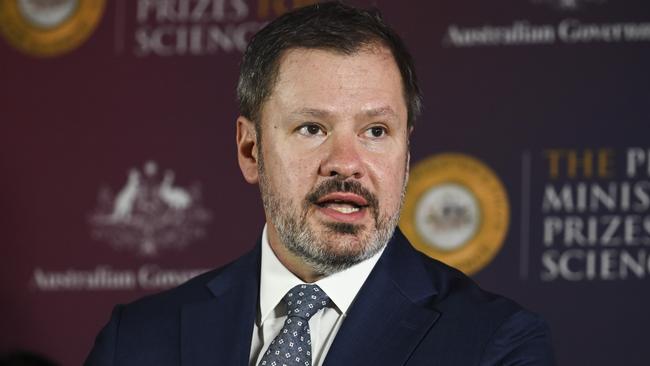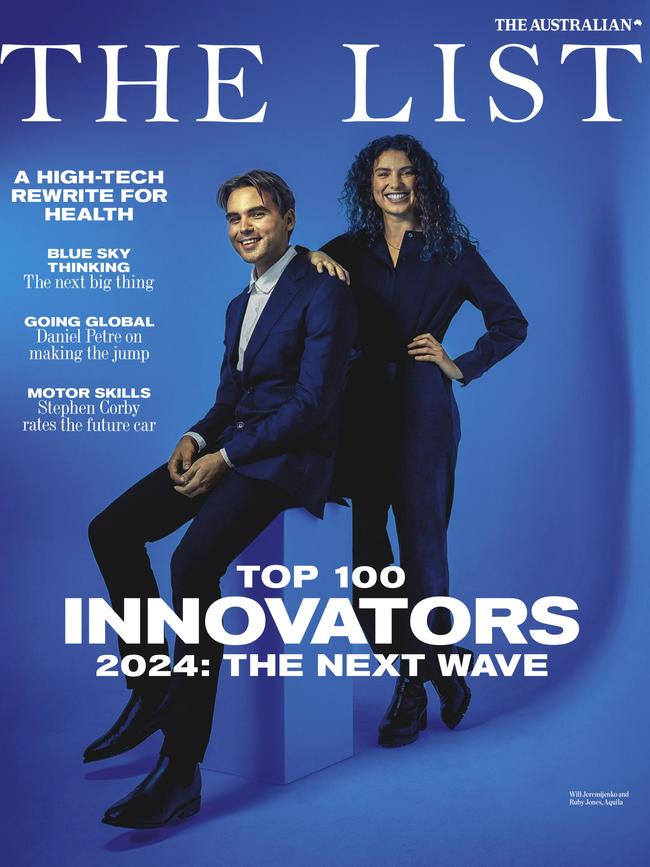Ed Husic: ‘Seismic but not insurmountable’ issues as Aussie know-how lured overseas
Our innovators may be world-leaders but too often they are lured overseas, resulting in an economic loss to the nation, according to Industry and Science Minister Ed Husic.

Our innovators may be world-leaders but too often they are lured overseas, resulting in an economic loss to the nation, according to Industry and Science Minister Ed Husic.
Mr Husic says Australia is a global leader when it comes to know-how, consistently ranking among the top 10 in research across a range of disciplines, from medical research to robotics and quantum technologies.
“Yet when it comes to converting our research firepower into fresh business opportunities and thriving new industries, there is room for improvement,” he said.
“Over the last decade we’ve seen a drop in our world rankings in economic complexity.
“And we’ve seen Australian know-how lured offshore, taking economic opportunities with it. Bucking that trend is of central importance to the government.”
Join The Australian’s technology editor Jared Lynch for a free panel discussion at SXSW at The Ideas Dome, Tumbalong Park, Sydney, at 2pm on Monday, with guests Ada Guan, CEO, Rich Data Co, and Michael Batko, CEO, Startmate.
Mr Husic’s comments are made in The Australian’s annual Top 100 Innovators List magazine to be published on Friday and ahead of a panel discussion on innovation at the SXSW Sydney tech event on Monday. He said the government was working to encourage more local manufacturing via the $23bn Future Made in Australia plan and the $15bn National Reconstruction Fund.
Also in the magazine, opposition Industry spokeswoman Sussan Ley wrote that Australia’s capacity to innovate had never been more critical but structural changes were needed if ideas were to thrive.

“Geopolitical competition has returned to the Indo-Pacific,” she said. “Australia and the rest of the world must walk the tightrope of transitioning energy-hungry modern economies to the latest innovations in energy technology.
“Our society is ageing, and productive workers are shouldering more of the tax burden. We are a migrant nation coming to terms with its multicultural makeup and the friction of building too few homes and infrastructure.
“Artificial intelligence’s rapid expansion is posing questions to a professional class now feeling the anxieties that have plagued manufacturing workers for a century.”
Ms Ley said these forces were “seismic but not insurmountable”. New ideas were important but the reality was that it “has never been harder to get things done”.
“Australia is making itself less competitive,” she said. “Australian companies once led the world on balancing fairness and productivity, but industrial red tape has cost us that advantage. Australian ideas once thrived thanks to affordable, reliable energy, but we’ve ceded that advantage.
“We have heaped on regulation and risk, binding ourselves with reams of red and green tape.
“No amount of government grants, bodies and programs can outperform the structural drag we are seeing. It is a drag we can’t out-invent.
“The answer is not more bureaucrats or forms. Government must focus on the fundamentals.
“This does not mean vacating the field or smaller thinking.
“It does mean government building new foundations that give our businesses a fair go to compete in a global market. Because Australian ideas deserve the chance to succeed.
“We can and must modernise our national energy system. Next generation, zero-emission nuclear technology, backed by gas and renewables, is our best chance to deliver net-zero and unlock a century of affordable and reliable power for Australian enterprise.
“We can and must modernise our education system.”





To join the conversation, please log in. Don't have an account? Register
Join the conversation, you are commenting as Logout